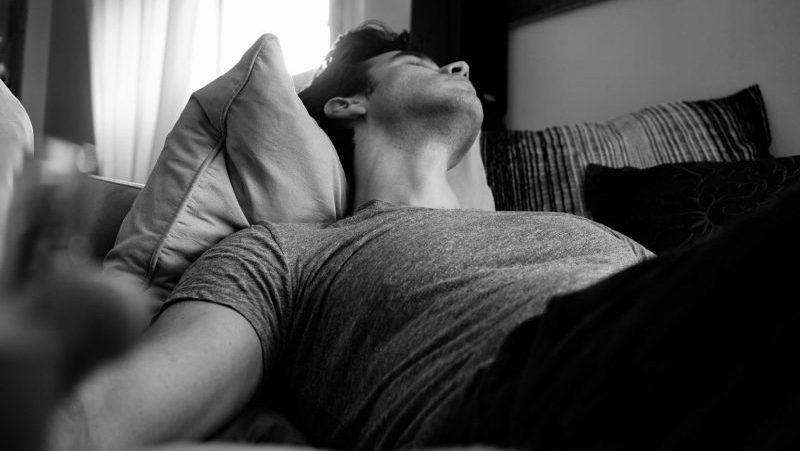Sleep is an essential aspect of our lives, and getting enough restful and restorative sleep is crucial for our overall health and well-being. Unfortunately, many people struggle with sleep issues, including insomnia, sleep apnea, restless leg syndrome, and other sleep disorders. These problems can impact both physical and mental health, leading to fatigue, irritability, and decreased productivity.

In this comprehensive guide, we will explore various tips for improving sleep hygiene, managing insomnia, understanding the importance of REM sleep and circadian rhythm, and discuss how hypnotherapy can help improve sleep quality.
Understanding Sleep Hygiene
Sleep hygiene refers to the habits and practices that promote healthy and restful sleep. Good sleep hygiene is essential for our physical and mental health, and incorporating the following tips into your daily routine can help improve your sleep quality:
- Set a consistent sleep schedule: Try to go to bed and wake up at the same time every day, even on weekends and holidays.
- Create a relaxing sleep environment: Make your bedroom a comfortable and relaxing space that is conducive to sleep. Consider using blackout curtains, a white noise machine, or a comfortable mattress and pillows.
- Avoid caffeine and alcohol before bedtime: Both caffeine and alcohol can disrupt sleep and make it more difficult to fall asleep and stay asleep.
- Limit exposure to electronic devices: The blue light emitted by electronic devices such as smartphones, tablets, and laptops can suppress the production of the sleep hormone melatonin, making it harder to fall asleep. Consider avoiding electronic devices for at least an hour before bedtime.
- Engage in relaxing activities: Consider engaging in relaxing activities such as reading, taking a warm bath, or practicing relaxation techniques such as meditation or deep breathing exercises.
Managing Insomnia
Insomnia is a common sleep disorder that can make it difficult to fall or stay asleep. There are several ways to manage insomnia, including:
- Practicing relaxation techniques: Techniques such as meditation, deep breathing exercises, and progressive muscle relaxation can help give relief and reduce anxiety, making it easier to fall asleep.
- Establishing a bedtime routine: Going through the same routine each night before bed can signal to your body that it’s time to sleep, making it easier to fall asleep and stay asleep.
- Limiting daytime napping: Napping during the day can interfere with nighttime sleep, so it’s important to limit daytime napping or avoid it altogether.
- Avoiding stimulants: Stimulants such as caffeine can interfere with sleep, so it’s best to avoid them in the evening.
The Importance of REM
REM (Rapid Eye Movement) sleep is a vital stage of the sleep cycle that occurs approximately 90 minutes after falling asleep. During REM sleep, the brain is highly active, and this stage is associated with dreaming, learning, and memory consolidation. Adults typically require 7-9 hours of sleep per night, including REM sleep, to feel well-rested and alert during the day.
The Role of Circadian Rhythm
The circadian rhythm is the body’s internal clock that regulates many physiological processes, including the sleep-wake cycle. The circadian rhythm is regulated by exposure to natural light, with exposure to bright light in the morning and low light in the evening promoting a healthy sleep-wake cycle. Disruptions to the circadian rhythm, such as those caused by shift work or jet lag, can significantly impact sleep quality.

Common Disorders
In addition to insomnia, there are several other sleep disorders that can impact sleep quality, including:
- Restless leg syndrome: A condition characterized by an irresistible urge to move the legs, often accompanied by uncomfortable sensations.
- Narcolepsy: A neurological disorder that causes excessive daytime sleepiness and sudden, uncontrollable episodes of falling asleep.
- Sleep apnea: A condition in which breathing stops during sleep, leading to interrupted sleep and daytime fatigue.
If you suspect that you may have a sleep disorder, it’s important to speak with your healthcare provider. Treatment options vary depending on the type and severity of the disorder, but may include medications, lifestyle changes, and/or behavioral therapies.
The Role of Hypnotherapy for Sleep Quality
Hypnotherapy is a type of therapy that uses hypnosis to help individuals relax and enter a trance-like state. During hypnosis, individuals are more receptive to suggestions and may be able to overcome negative thought patterns or habits that contribute to sleep issues.
Hypnotherapy may be used to help manage sleep disorders such as insomnia and sleep apnea, as well as to promote relaxation and reduce anxiety. During a hypnotherapy session, a trained therapist may use techniques such as guided imagery, progressive muscle relaxation, and visualisation to promote relaxation and encourage healthy sleep habits.
Research on the efficacy of hypnotherapy for sleep disorders is limited, but some studies have shown promising results. A 2014 study published in the Journal of Sleep Research found that hypnotherapy was effective in improving sleep quality and reducing insomnia symptoms in individuals with insomnia. And for further information from the Sleep Foundation on how effective is hypnosis to help you fall asleep read their fact checked article here.
Conclusion
Sleep is an essential aspect of our lives, and prioritising good sleep hygiene is crucial for our overall health and well-being. By establishing a consistent sleep schedule, creating a relaxing sleep environment, engaging in relaxing activities, and avoiding stimulants before bedtime, you can improve your sleep quality and enjoy the many benefits of restful sleep.
If you’re struggling with sleep issues, it’s important to speak with your healthcare provider to rule out any underlying sleep disorders. Additionally, considering hypnotherapy as a complementary therapy may also help improve sleep quality and reduce insomnia symptoms. Remember, getting enough restful and rejuvenating sleep is essential for a happy and healthy life.
